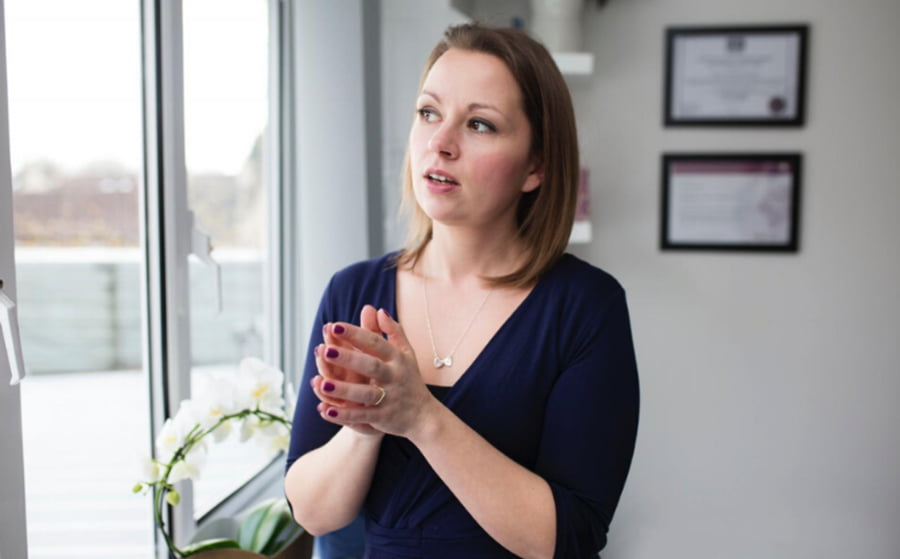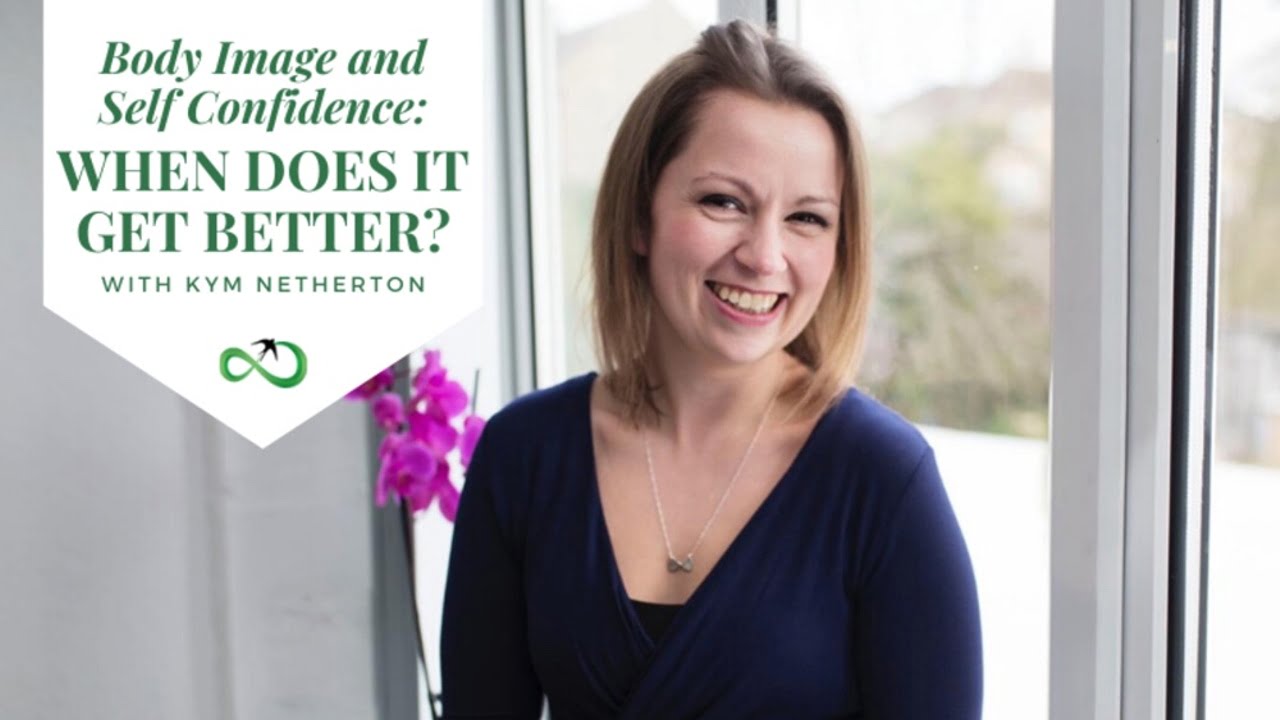Harvard Medical School called low body confidence “a global issue” and if you are like the majority of women in the Western World, chances are you don’t like the way your body looks. The Dove Global Beauty and Confidence Report 2016, the largest study of its kind to date showed that more than 80% of women and girls would cancel plans if they’re having a “bad day” and would take measures to control their eating.
This week I’m chatting to Kym Netherton all things body image, self-care and confidence. As well as being an unrelentless Positive Body image Ambassador, Kym is also an experienced psychotherapeutic counsellor, who has been working with Eating disorders and body image for over 14 years. Kym has a wealth of knowledge and wisdom to share and it’s no secret that many of my clients are also seeing Kym so that all angles of healing their relationship with food and body are covered.
But don’t let her qualifications and experience fool you- she is empathic, down-to-earth and super supportive! So let’s find out what Kym has to say about body image and self confidence.
If you could wave a magic wand and change the most toxic thought pattern in women (and men) about their bodies, what would it be?
Great question! I think the most toxic belief is that there is only one right way to look, only one ‘right’ body size/shape and that it has anything to do with our worth. In eating disorder terms the idea is often that ‘thin is good, thinner is better and thinnest is best’, which of course just isn’t true! If this was really the case then Eating Disorder Units would be full of the happiest people on earth - they aren’t. It would also mean that all people in larger bodies are miserable and lonely, and that isn’t true either! Our intrinsic value as human beings is so much more than how we look, the experience of being with a person soon goes beyond the 2d image.
There’s no doubt that unrealistic standards of women in the media have a role to play in the rise of body dissatisfaction and low self- esteem. What advice can you give to best protect mental health if you cannot change the environment?
Firstly, I think it’s really important to remember that if someone is trying to sell you something then their primary aim is to make you dissatisfied with how you already are. How often have we felt fine about an aspect of ourselves or our image until we see something that we now *must* have or change about ourselves? Secondly, you also need to remember that no one really looks like they do in the pictures on the internet, photoshopping and filtering are the norm, which means that comparing yourself to a model in an image is not much different to comparing yourself to a cartoon character, they aren’t like that in real life!
Is it ever possible to change negative body image without changing the body, or is it something a person may have for life?
A few years ago I heard the phrase ‘normative dissatisfaction’ and initially felt pretty despondent about the idea that worldwide, cross culturally, there is a lack of satisfaction with our bodies - so much so that it is now more normal to be unhappy with your body than to be happy with it. I genuinely feel that it an act of massive rebellion, particularly for women, to buck this trend. To find beauty, strength and awe in their bodies. The truth is that beauty ‘standards’ change but our bodies really don’t, attempting to make our bodies fit a mould that we naturally don’t will only ever cause us unnecessary distress. We have one body for our whole life, we may as well learn to like or even love it!
Although related, poor body image and body dysmorphia are different, and I believe that more research needs to be done into the biological element of body dysmorphia.
You work with Eating disorders and body image is often a strong influence or mediator. Can you change your relationship with food or even recover from an eating disorder even if you don’t LOVE your body?
In short - Yes. I recovered physically, emotionally, and mentally from my eating disorder a long time before I could say that I loved my body. The first step for me was to learn body acceptance, I accepted my body for it’s function and I accepted that it didn’t look the way that I wanted it to look. For a long time I thought that was as good as it got. I do love my body now and that is incredible, something I certainly didn’t believe was possible for a very long time. Loving my body is one of the protective factors I have against ever relapsing so I always encourage people to aim for body love, but acceptance comes first.
Let’s talk Body Positive Movement. Many of my clients often feel resistant towards trying it out, with a thought that I might ask them to sit in front of the mirror naked, yelling “I love you” (I never do!). What is your experience of the movement and can it really support people who feel very negative towards their bodies?
The body positivity movement is vast and has co-opted many other movements into it over time too. I think one of the best things about it is that we get to see images of real women, with real bodies, not hiding themselves away. When we can look at another woman’s body and see beauty I think it is more possible for us to consider our own bodies and find the beauty that might be found there too. In a society where the overriding aim is on ‘improving’ or ‘shaping’ or in some way changing our bodies to make them a perceived idea of perfect, it is pretty challenging to consider celebrating our bodies for (not despite) all of their uniqueness, ‘flaws’ and imperfections.

What is the fastest way of boosting self- confidence and changing body image for the better?
I think having a gratitude practice is a big one here. Acknowledging all the things about ourselves and our bodies that we’re grateful for can be a powerful way of seeing our bodies differently. I also think it’s important to do things with our bodies which enable us to see their function rather than just their form. When you are at a low weight it often isn’t possible to move your body safely at all, when you are healthy you can be strong, flexible, sensual and those things feel great in and to the body. I encourage people to find ways of moving in their bodies which feel really juicy, playful and loving to them, perhaps which challenge them in some way too.
You have recently completed a 40 Day Self- Love Sadhana. Can you tell me a bit more about it? What inspired you to do it? What changes has it brought to your life?
I think I’m really pretty good at self care and could list all my care practices easily but I had noticed some ways that I wasn’t being very loving to myself creeping in. Self care and self love are really very different and having previously completed a 40 day compassion practice I decided that I would put myself on a self love sadhana because knowing you love someone isn’t enough (I knew I loved myself, that wasn’t a problem). Love is a verb, you have to commit to practicing it. If you love a partner but you never show them, how are they going to feel it? If I love myself but don’t actively show it, am I going to feel loved? I hadn’t intended to share it initially but three days in I sat in a cafe writing myself a love letter and felt myself filled with the most amazing loving feelings and knew that I had to share it, I knew it was needed.
The practice wasn’t always easy, I was often confronted by the shadowy aspects of myself that weren’t very loving at all, and I also found myself having to create stronger boundaries with people who weren’t being loving towards me - when you love someone you don’t let them get treated badly! Not everyone enjoys a boundary being put in place...
If a mother is unhappy with her body and she doesn’t want to pass it onto her daughter, what advice would you give to the mother?
Children learn what they see, not what you tell them. It doesn’t matter how positive you are about your daughters body if you are being cruel to your own. Commit to loving your body in the way that you would like your daughter to love her body. Love it unconditionally, the way that you love your daughter. If you wouldn’t say it to your daughter, or you wouldn’t want your daughter to say it about herself, don’t say it to yourself. You weren’t born hating your body, you learned that somewhere, you can unlearn it.
What daily activities and practices best promote positive body image? And which make it worse?
That’s probably dependant on individuals but I would promote gratitude, loving movement, meditation and wearing the right-sized clothing! I think daily weighing/body checking and comparison to others (in person or via social media) are some of the most damaging things you can do for your body image. I would also look out for toxic relationships with other people in your life and the impact that they might be having on your body image.
In your opinion, is there a link between quality nutrition and body image?
Very interesting question and you probably have more of an opinion on this than me 🙂 I think quality nutrition is one way of showing love to your body, I think exploring the way that food affects you physically/emotionally is a crucial part of recovery from disordered eating of any kind. I think when you feel good about the way you are treating your body and you are eating foods which nourish and don’t cause pain to your body you tend to feel better in and about your body too.
—-
Want to keep following Kym’s Body Positive and Self-Love inspiration? Follow her on @my_self_love_sadhana and find more information on what she does on her website http://www.eatingdisorderspecialists.co.uk/
Want to start boosting your confidence and reconnect to your body? Join Kym and yoga teacher Esmeralda on their quest to connect you back into the energy of loving yourself fiercely. Join them for Self-Love Sundays in Frome every first Sunday of the Month. The next one is 1st December!



